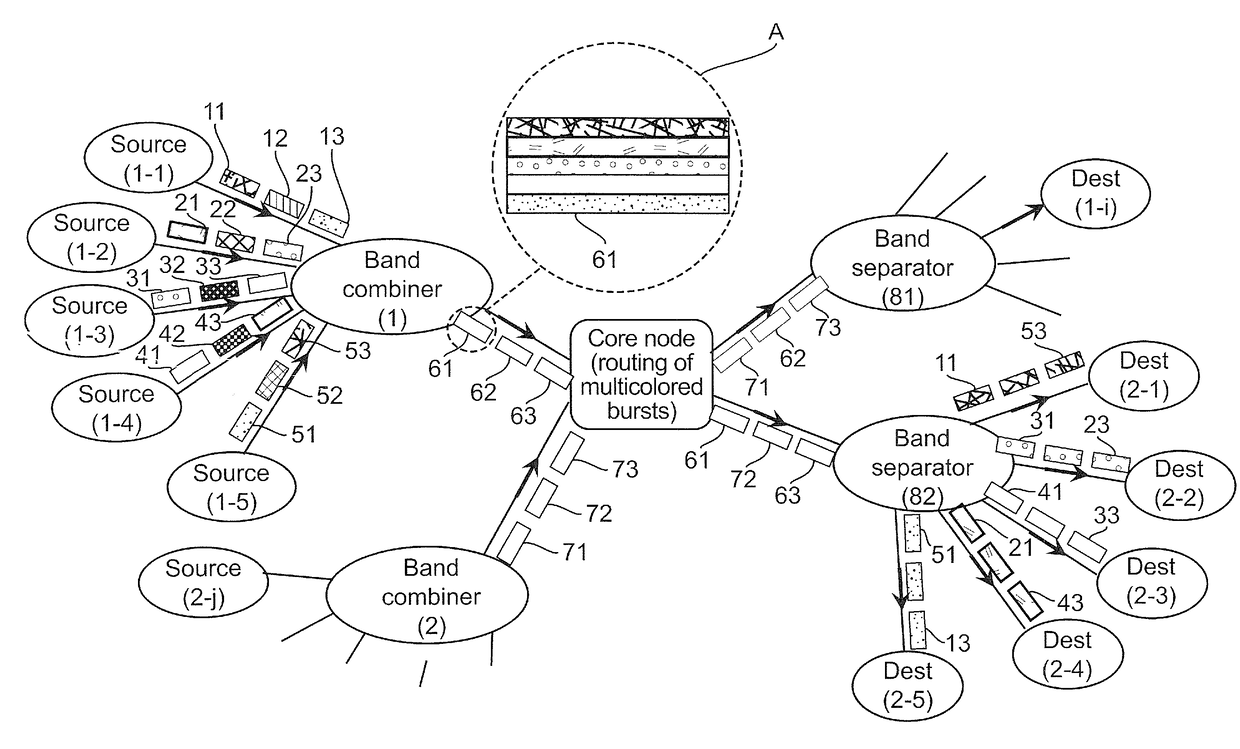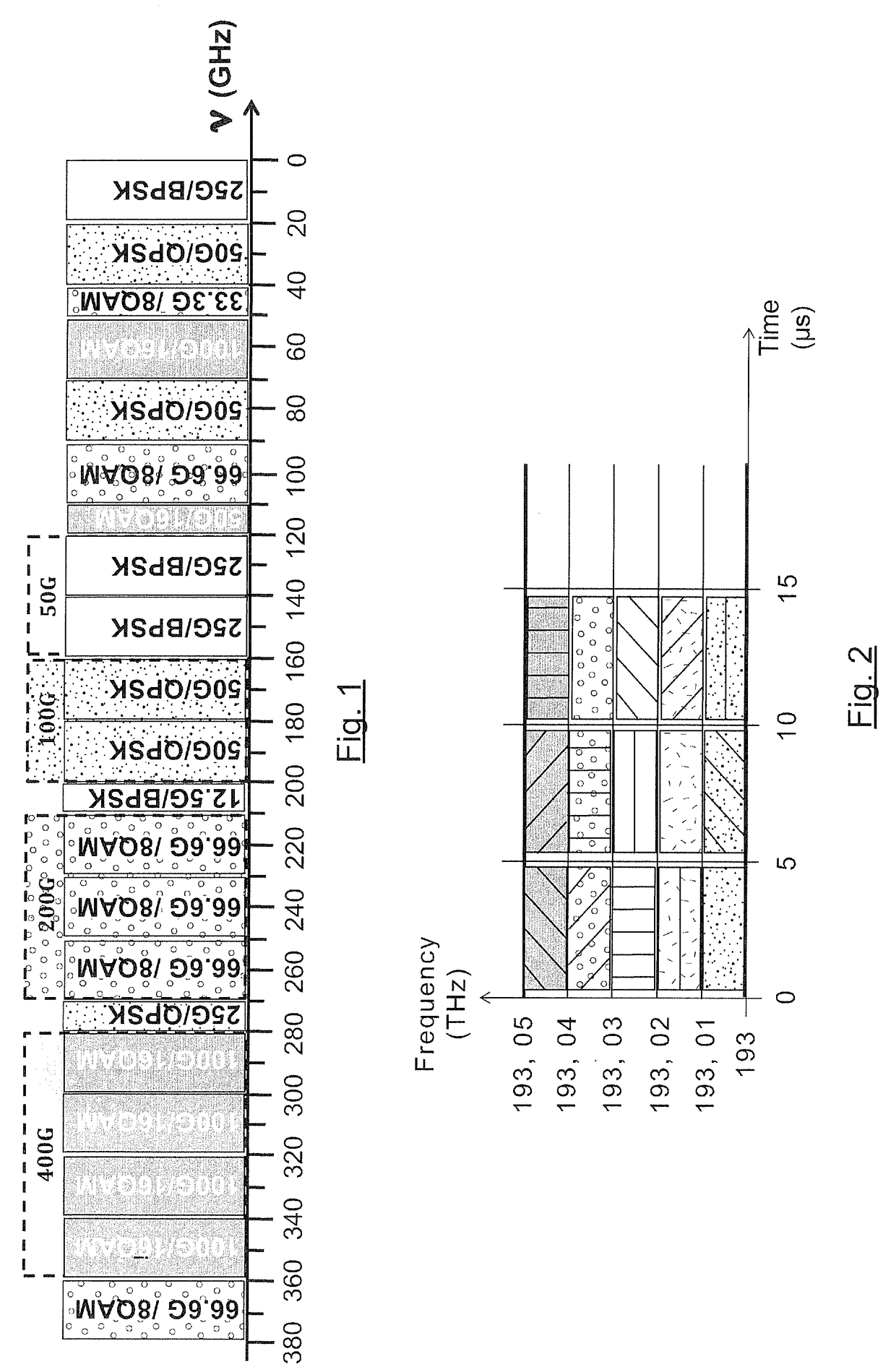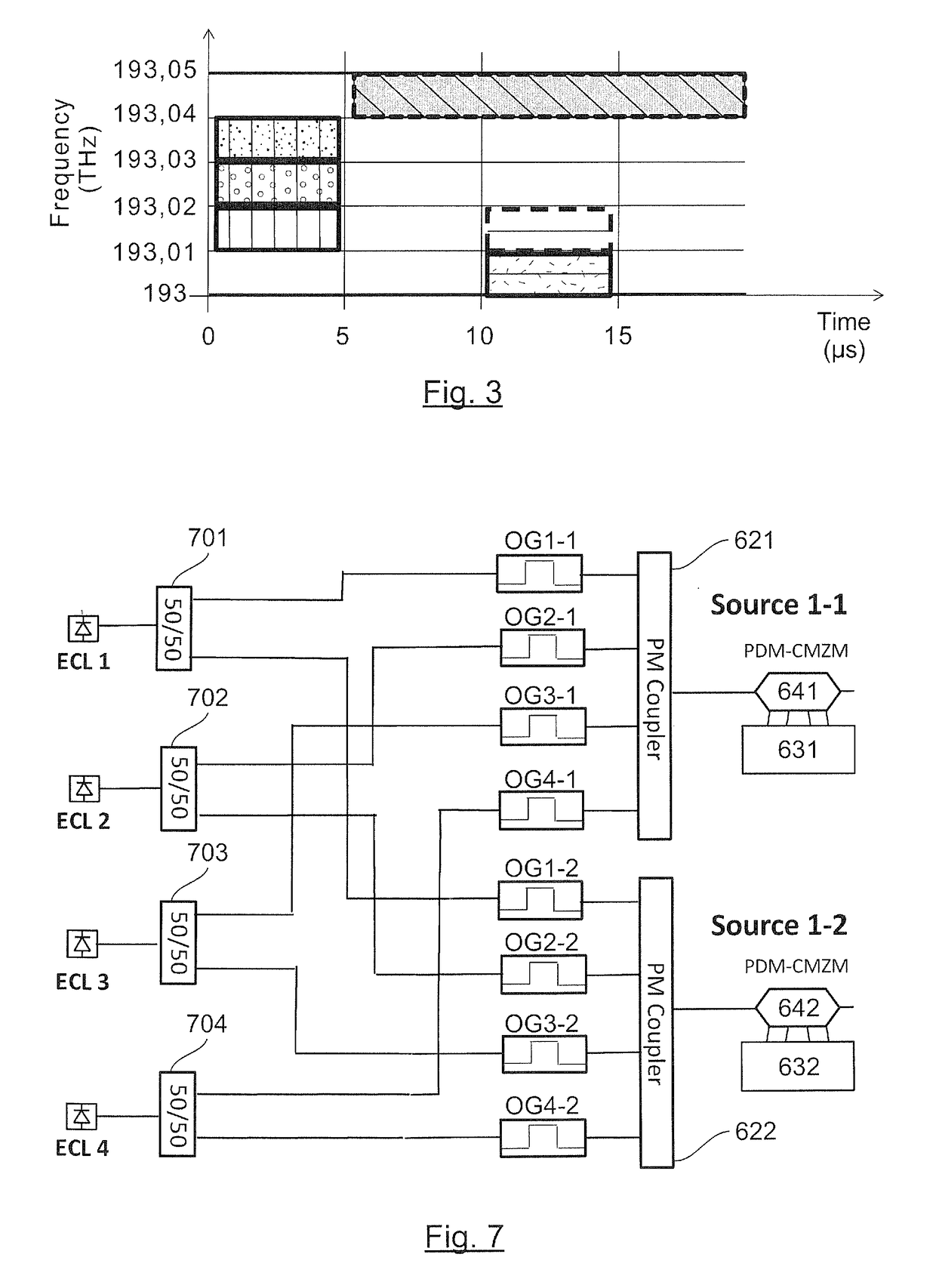Optical signal comprising a succession of multi-band bursts of multi-carrier data signals, system and method of emission of such a signal, and corresponding optical transport network
a multi-carrier data signal and optical signal technology, applied in the field of optical communication networks, can solve the problems of obs technique not benefiting from the possibility of optical memories, the filling of transmission channels can be relatively inefficient, and the traffic is increasingly burst with a “packet” nature, so as to achieve low phase noise and low phase noise. , the effect of increasing the degree of freedom
- Summary
- Abstract
- Description
- Claims
- Application Information
AI Technical Summary
Benefits of technology
Problems solved by technology
Method used
Image
Examples
Embodiment Construction
[0089]The general principle of the invention relies on the combination of two time and spectral solutions for accessing the sub-wavelength granularity in an optical transmission network, that makes it possible to scale up the capacity of the networks by offering the finest possible granularity, while at the same time enabling an increase in the bit rate per channel up to one terabit / s (or even beyond) and offers increased flexibility as compared with prior-art techniques.
[0090]Referring to FIG. 2, we now present an example of a representation of a transmission channel sub-divided according to the general principle of the invention explained above, namely:[0091]time sub-division by data bursts (in FIG. 2, the data bursts have a duration of 4.5 μs for a slot duration of 5 μs for example) and[0092]a spectral sub-division by bands (10 GHz, five bands being illustrated in FIG. 2 to form a 50 GHz channel).
[0093]In FIG. 2, each of the background patterns (shaded, with small circles, dots, ...
PUM
 Login to View More
Login to View More Abstract
Description
Claims
Application Information
 Login to View More
Login to View More - R&D
- Intellectual Property
- Life Sciences
- Materials
- Tech Scout
- Unparalleled Data Quality
- Higher Quality Content
- 60% Fewer Hallucinations
Browse by: Latest US Patents, China's latest patents, Technical Efficacy Thesaurus, Application Domain, Technology Topic, Popular Technical Reports.
© 2025 PatSnap. All rights reserved.Legal|Privacy policy|Modern Slavery Act Transparency Statement|Sitemap|About US| Contact US: help@patsnap.com



